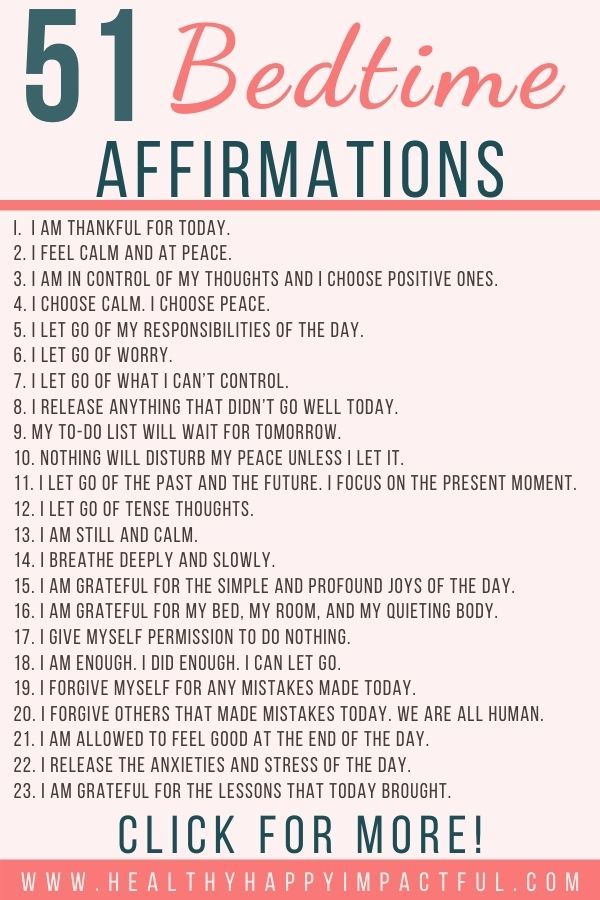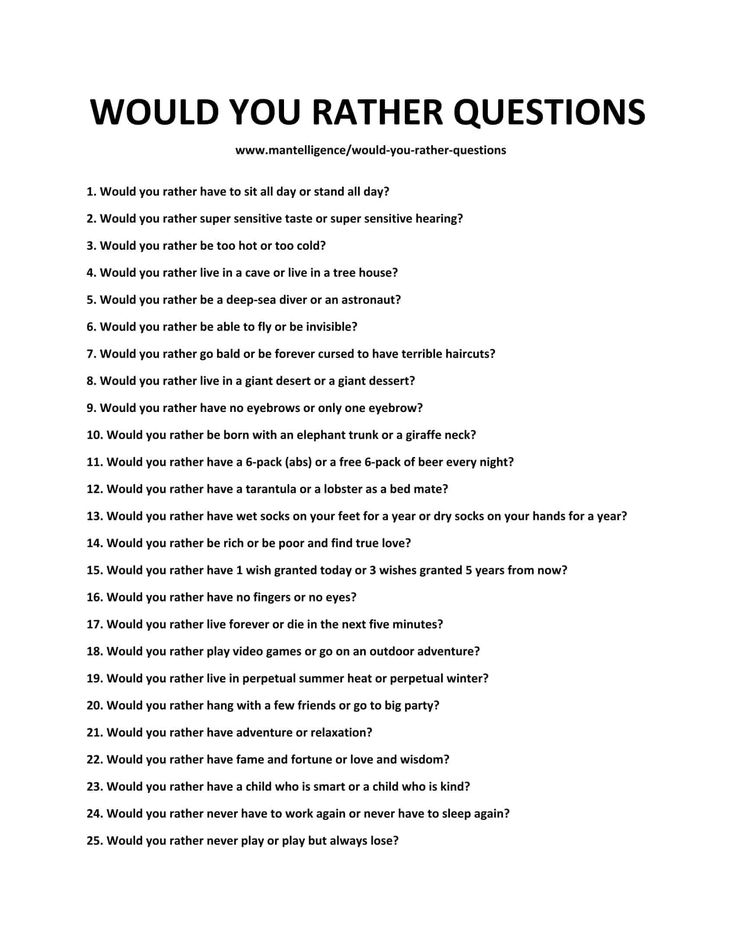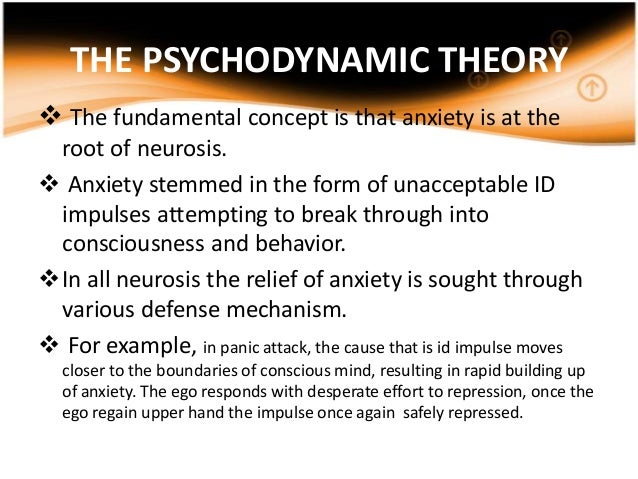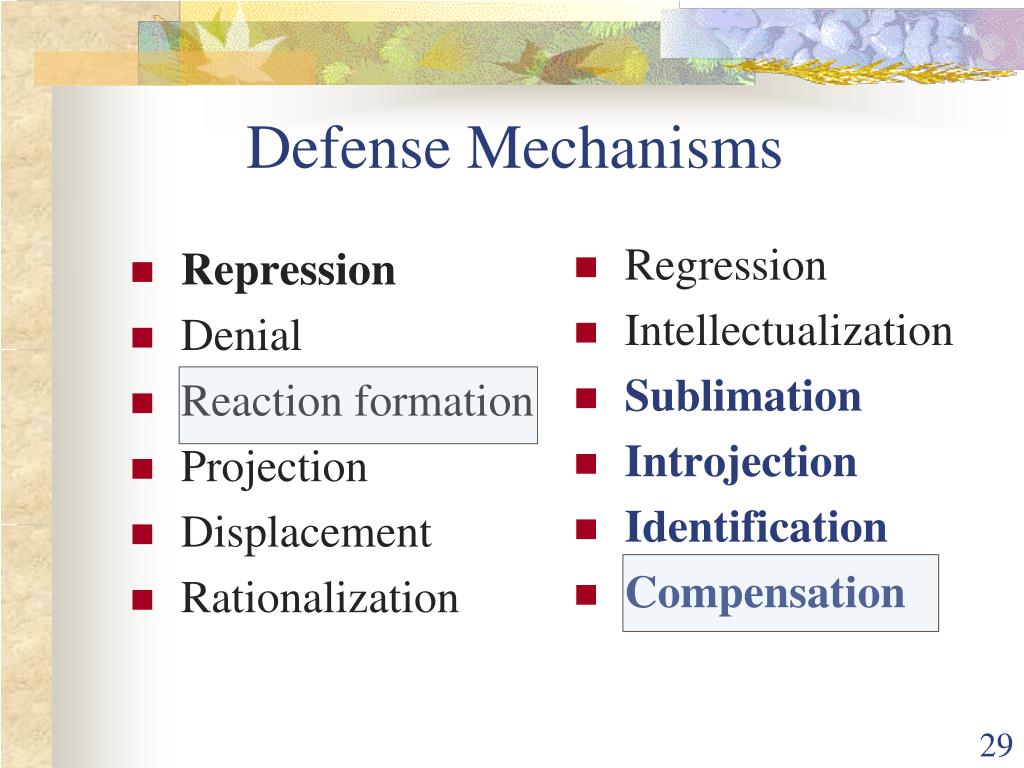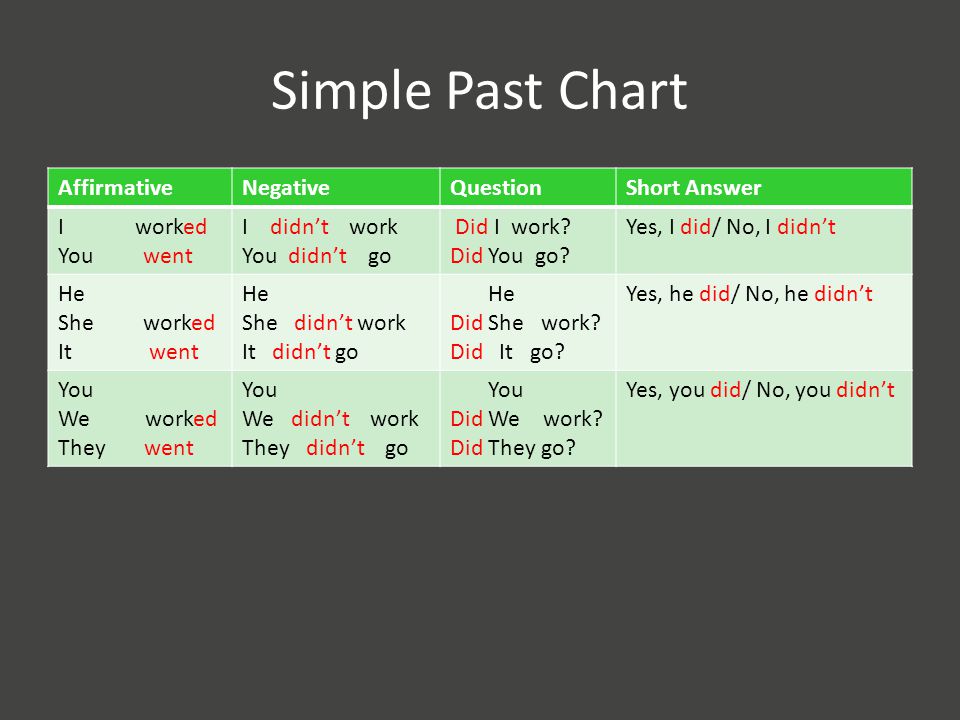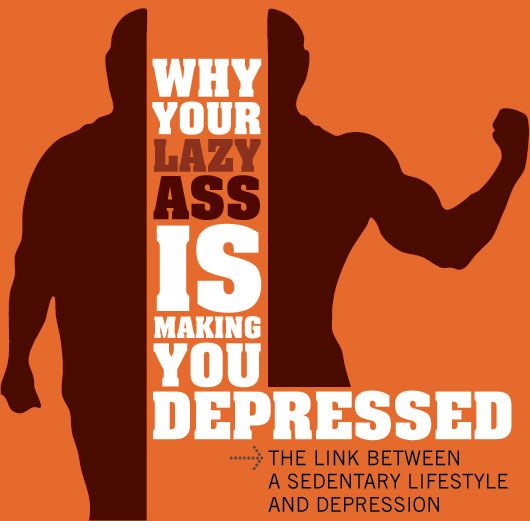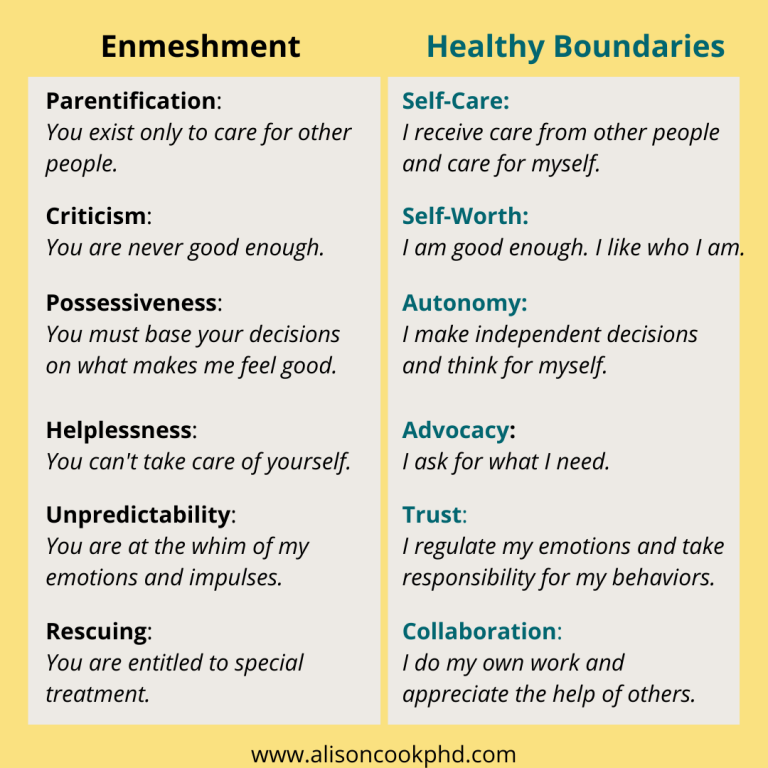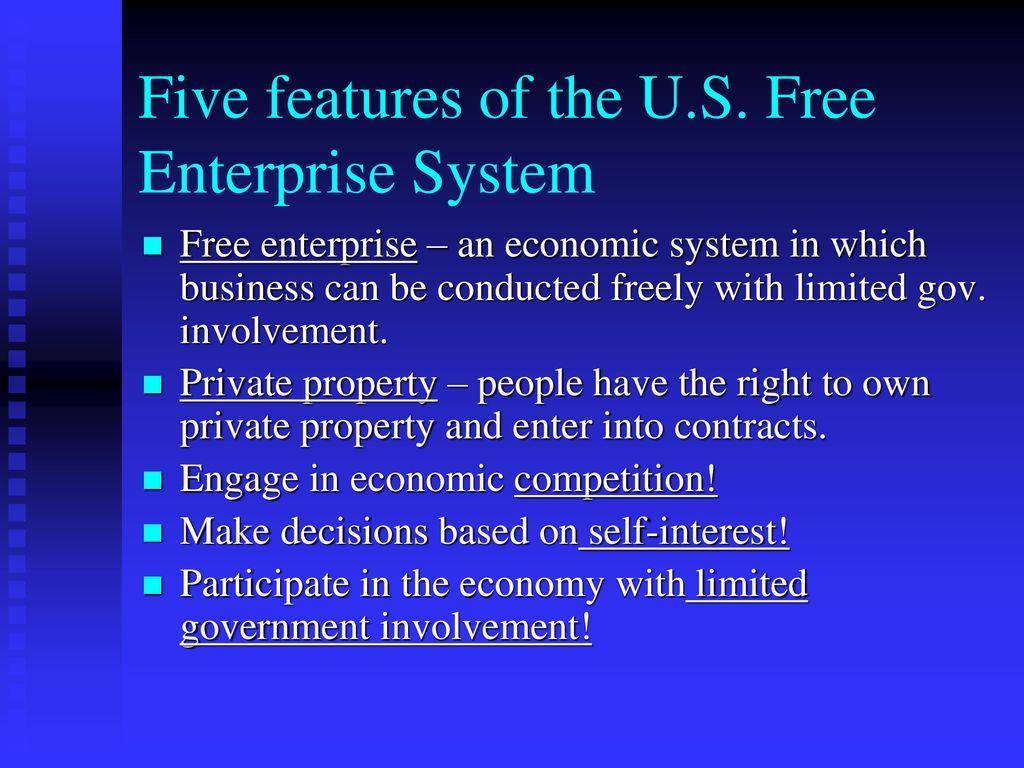Positive affirmations for worrying
Reframing Your Worry to Calm Down
Affirmations are positive statements you repeat to promote change in your life and ease your distress. They can be useful in managing anxiety.
Using positive affirmations is like practicing positive self-talk. It can help you reframe your negative thoughts and focus on ideas and behaviors that lead to change.
You can create your own or find existing affirmations that speak to you. In either case, affirmations can become a useful tool to manage anxiety symptoms.
Here are a few positive affirmations for when you experience anxiety or to use regularly to manage anxiety symptoms in the long term.
To calm down quickly when you feel anxiety rising, try to repeat affirmations while you practice deep breathing or any other relaxation technique that works for you.
- “I am safe and in control.”
- “I have done this before, and I can do it again.”
- “This too shall pass.”
- “I am strong.”
- “I trust myself.
”
- “I am capable.”
- “I take things one day at a time.”
- “I inhale peace and exhale worry.”
- “This feeling is only temporary.”
- “I am loved and accepted.”
- “I am enough.”
- “Look at me go! I can do it all.”
- “I love myself.”
- “I forgive myself.”
- “I let go and I am free.”
- “I am doing the best I can and that is enough.”
- “I release the past and embrace the present.”
- “Wherever I go, I am well.”
- “I can handle whatever comes my way.”
- “I am safe and protected.”
- “I am safe.”
- “I am brave.”
- “I can move past this moment.”
- “I am in charge.”
- “As I breathe, I am calm and relaxed.”
- “I have survived my anxiety before. I will survive it now.”
- “My body is my ally.”
- “I act with confidence because I know what I am doing.”
- “I am different and unique, and that is OK.”
- “I am safe in the company of others.
 ”
” - “I love and I am loved.”
- “I am prepared and ready for this situation.”
- “People assume I can do this, I know I can, and I will.”
- “I like myself and that is enough.”
- “I am at ease when talking to other people.”
- “I enjoy doing this.”
- “I am good at everything I do.”
- “Day by day, minute to minute.”
- “I am capable and prepared.”
- “I let go of control and focus on joy.”
- “I am here, I am now, and I am well.”
- “I can handle anything that’s to come.”
- “I am safe in the here and now.”
- “I will handle whatever happens like I always do.”
- “I choose to see the beauty in my surroundings.”
- “I have time to prepare and decide.”
Positive self-talk and positive thinking have a direct effect on how you feel. A 2016 study, for example, found that replacing worrisome thoughts with positive mental images or positive affirmations helped people living with anxiety to worry less.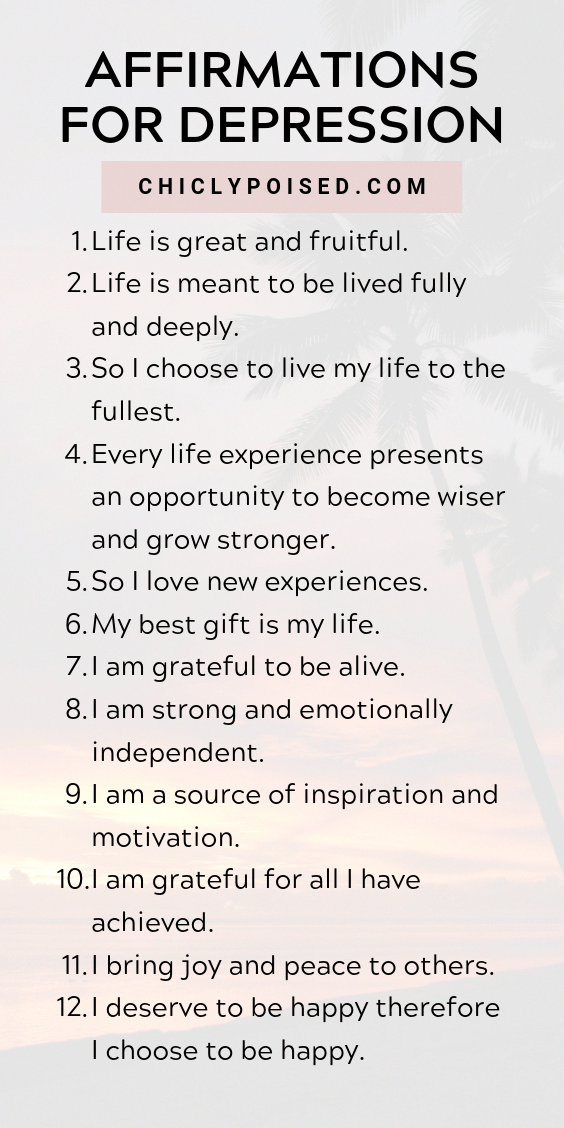
Another study from 2015 suggested that affirming yourself activates your brain’s reward system. The reward system causes you to experience a sense of pleasure and joy. It also reduces the experience of pain and worry.
A 2018 randomized controlled trial with mothers experiencing postpartum baby blues found that listening to positive affirmations and practicing relaxation techniques every day for 4 weeks offered the mothers significant relief from their symptoms.
Evidence from a U.S. national adult survey also found that practicing spontaneous self-affirmation was linked to a greater sense of:
- happiness
- hopefulness
- well-being
The report also found that self-affirmation, which focuses on your core values and self-worth, was related to feeling less angry or sad.
Research from 2015 indicated that under stress, your concept of self can constrict, which may impact your self-worth. Affirmations can help you reframe your thoughts from focusing on the aspects of the self that feel threatened when facing a challenge to the ones that may remind you that you’re capable and worth it.
In other words, affirmations help shift your focus from a problem and refocus on an extended vision of the self. This extended vision of who you are allows you to identify skills, experiences, and traits that make you capable of overcoming this and any other challenge.
Overall, using positive affirmations can help your emotional health by:
- decreasing stress
- improving confidence
- boosting overall mood
- focusing on solutions
- encouraging optimism
- boosting motivation
- helping you manage physical pain
- reducing fear
When using affirmations, you can:
- write them down a few dozen times in a notebook while focusing on their meaning
- record them and then play them back throughout the day
- write them down separately on sticky notes and tape them around your desk or home
- pick one and repeat it mentally a few times until you calm down
- pick one or more and repeat them aloud whenever you need
The start of your day and just before bedtime might be two of the best times to practice the affirmations.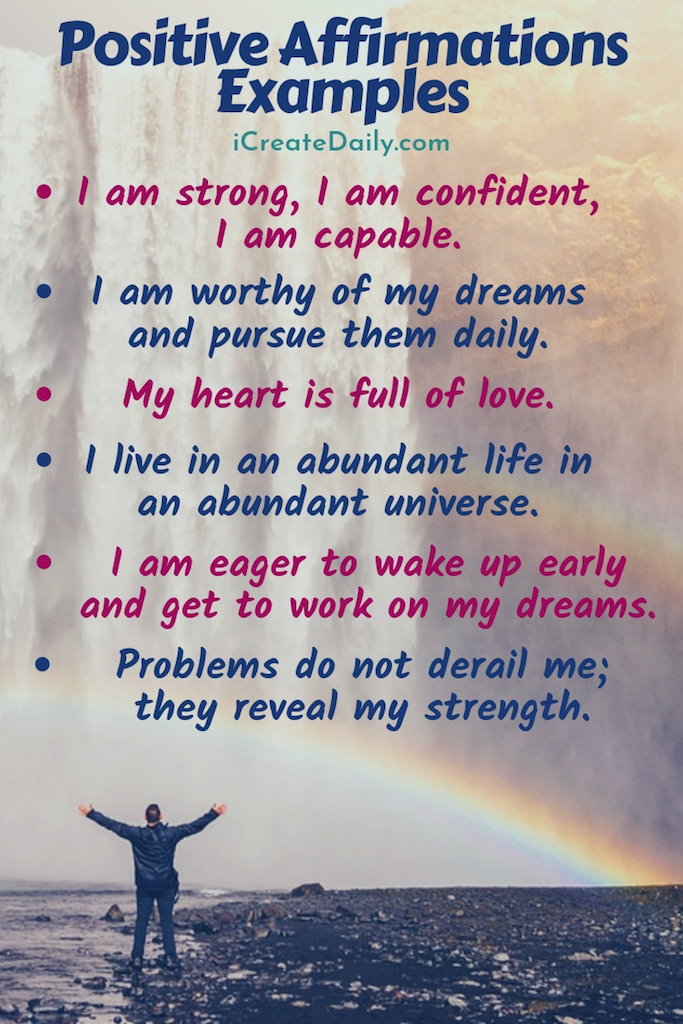
Some people find it helpful to say their positive affirmations in front of a mirror or make it part of their daily meditation practice.
The more you repeat your affirmations, the more confident you’ll feel. Positive statements work because they lead you to focus on positive self-talk and thinking while leaving worrisome thoughts aside.
How to create your own affirmations
To create your affirmations, consider phrases that speak to you and feel natural and appropriate to your challenges.
It’s essential to choose words that feel believable so that you’ll trust they can happen.
When creating affirmations, it’s best to stick with a first-person perspective to provide a stronger connection to your sense of self and goals. That’s why affirmations usually begin with “I” or “my.”
Consider writing affirmations in the present tense as if what you’re saying is already a reality.
For example, instead of saying, “I will be successful,” you’d say, “I am successful.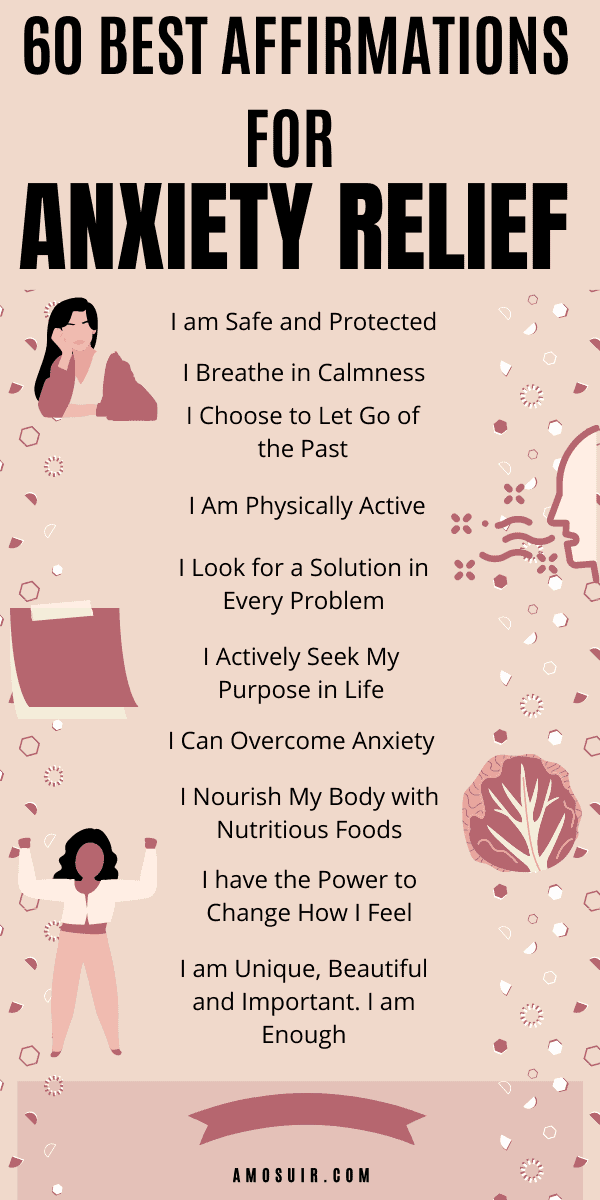 ”
”
You could also acknowledge your anxiety symptoms in your affirmations, but you’d add a positive twist.
For example, you could say, “I sometimes experience anxiety, but I can still achieve all of my goals.” Sometimes acknowledging your challenges can help you feel you can triumph over them.
Another idea is to speak to your core values to emphasize what’s important to you. This will boost your sense of self, improving self-esteem and self-empowerment when you repeat them.
For example, “I am noble and tolerant.”
Positive affirmations are statements you can use to decrease distress and focus on positive thinking. Research says they can help you feel more at ease.
When working with affirmations, you can write them down, repeat them aloud, or record them and listen to them throughout the day. Practicing relaxation techniques can make positive affirmations more effective for anxiety relief.
20 Positive Affirmations for Anxiety, Uncertainty, & Fear — travelJewels
During these challenging and unpredictable times, many of us are in a battle against our negative thoughts.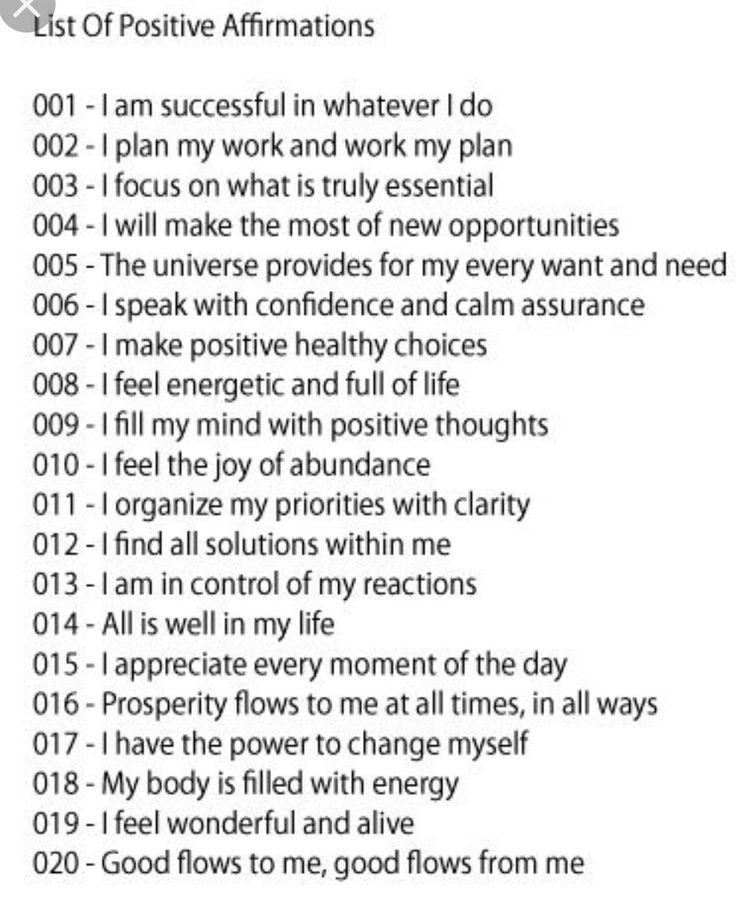 It is 100% normal to experience this during a global public health crisis. While it’s important to acknowledge these emotions, we want to avoid sitting in them for too long. Stress impacts our mind and body. According to the American Institute of Stress, 77% of Americans typically display physical symptoms caused by stress. Negative thoughts often lead to anxiety, depression, fear, among other emotional symptoms, and it adversely impacts our immune system (which, now more than ever, we need in top shape).
It is 100% normal to experience this during a global public health crisis. While it’s important to acknowledge these emotions, we want to avoid sitting in them for too long. Stress impacts our mind and body. According to the American Institute of Stress, 77% of Americans typically display physical symptoms caused by stress. Negative thoughts often lead to anxiety, depression, fear, among other emotional symptoms, and it adversely impacts our immune system (which, now more than ever, we need in top shape).
We can use daily positive affirmations to help shift our mindsets, overcoming negative thoughts and its physical effects.
What is a positive affirmation?
Positive affirmations are short, simple and powerful phrases that you repeat to yourself. These statements describe a specific outcome or who you want to be. Affirmations work because speaking in the affirmative places power in our hands to help us feel more in control of our wellbeing.
How do I begin a positive affirmation practice?
Affirmations aren’t one-size-fits-all. You have to find what works best for you, but repetition is key. You can start your day off with them in the morning, repeat them throughout the day, and/or say them at night. You can write them in your journal, place them on post-its throughout your home, speak them out loud, record yourself saying them and play it throughout the day, make them the background on your phone—the options are endless. Your thoughts influence your reality, so the more you repeat positive affirmations, the stronger your belief in those statements become, making room for hope and mental resilience.
You have to find what works best for you, but repetition is key. You can start your day off with them in the morning, repeat them throughout the day, and/or say them at night. You can write them in your journal, place them on post-its throughout your home, speak them out loud, record yourself saying them and play it throughout the day, make them the background on your phone—the options are endless. Your thoughts influence your reality, so the more you repeat positive affirmations, the stronger your belief in those statements become, making room for hope and mental resilience.
How do I create positive affirmations?
What’s concerning you most at the moment? What are some of your recent negative thoughts you had about yourself or a situation? Your affirmations should speak directly to those fears and worries. You can look online for affirmations or create your own starting with active statements, such as:
I am….
I release…
My body is…
My mind is…
I love…
Pro-tip: Download the free app Unique Daily Affirmations to help make incorporating positive affirmations into your routine easier.
Positive affirmations to increase your wellbeing and calm anxiety
Feel free to choose from these positive affirmations, combine them, or create your own:
I let go of what I can’t change and do my best with what I can.
I am relaxing each part of my body.
I release myself from stress.
My body is calm.
I find joy in the little things
6. I find joy in where I am.
7. I release worry and know that this too, shall pass.
8. I am safe and in control.
9. I will not stress over things I cannot control.
10. I appreciate my life and find things to be grateful for.
11. I have been through hard things before and have survived them.
12. I have the ability to overcome anxiety.
13. I am worthy of good things.
14. All of my feelings are valid.
15. Everything that is happening now is truly for my highest good.
16. I believe in my ability to get through tough times.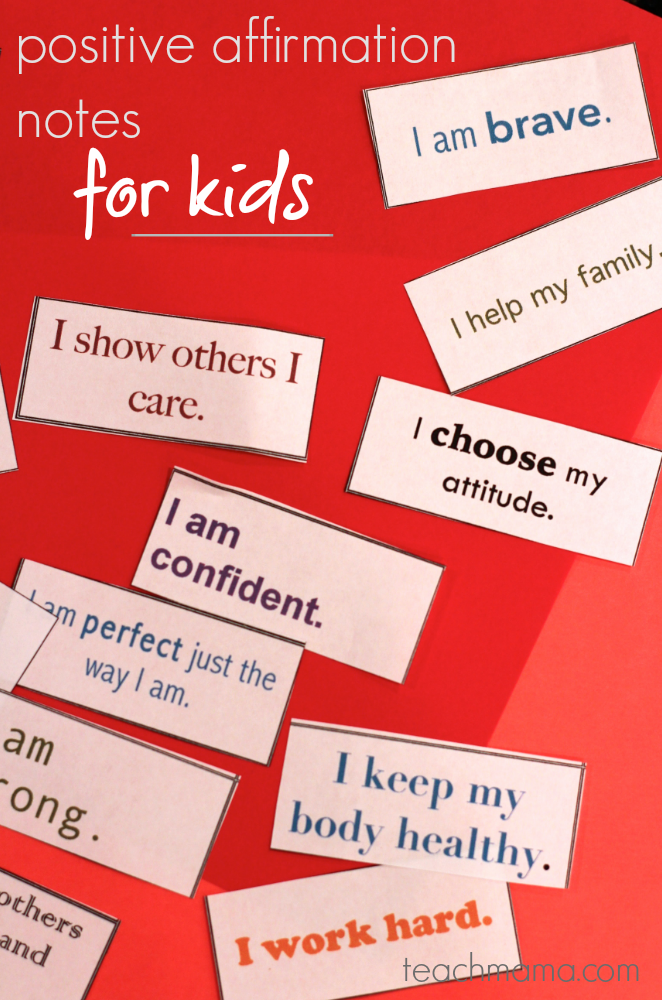
17. The feelings in my body are normal and I fully accept them.
18. I have everything I need within me.
19. I am blessed, loved, and supported.
20. I have so much to be grateful for in my life right now.
Peace is the result of retraining your mind to process life as it is, rather than as you think it should be. - Dr. Wayne W. Dyer
During these trying times, let us all remember to show ourself grace!
What affirmations are you telling yourself? Let me know in the comments.
Liked it? Pin it!
60 Best Affirmations for Anxiety, Fear and Stress 06 Mar, 2022 08:00 11979 Stress, Affirmations
18+
Selections
When you have anxiety, it seems like the whole world around you is falling apart.
The feeling of anxiety can be so overwhelming that it takes over your entire life, preventing you from seeing any hope of improvement.
Anxiety, stress and a sense of panic can be very difficult to cope on your own, and positive affirmations will help you with this. They help you let go of negative feelings, feel relieved, and regain control of yourself.
In this article, we have collected the most effective affirmations that help you cope with feelings of anxiety in everyday life.
How to manage anxiety with affirmations
Anxiety is essentially fear or fear for the future.
Each of us has anxiety from time to time, but when it becomes all-consuming, it begins to disrupt the usual course of our lives.
Negative thoughts create negative emotions that affect our mood and mental health. Affirmations are one way to start changing your thoughts in a positive way , restoring peace of mind.
Since anxiety is mostly about worrying about the future, one of the main ways to deal with it is to return to the present moment.
If you are depressed, then you are living in the past. If you are anxious, then you are living in the future. If you are in a state of calm, then you are living in the present. | Lao Tzu
This is the process when0014 we pronounce and repeat positive phrases, inspire our brain that we are calm and in control of the situation .
Although simple, affirmations are a very useful tool to help with anxiety. Affirmations are considered by many professionals to be a useful treatment and an important part of recovery.
Affirmations should be used at the moment of anxiety or a panic attack, but it is most effective to practice them regularly , for example early in the morning or in the evening before going to bed. This will help prepare your body and mind when anxiety strikes, making it much easier for you to deal with it.
When you say an affirmation, try to feel it, focus on the phrase and your breath, and let go of all negativity.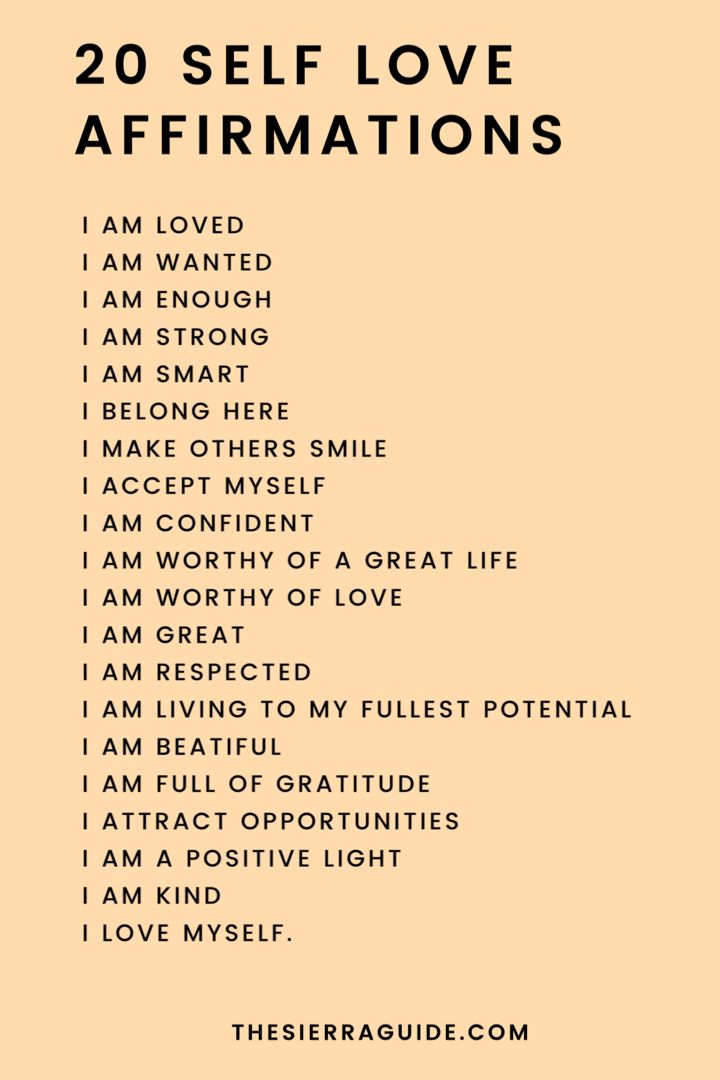
Positive affirmations to deal with anxiety
1. I am safe.
2. My natural state is calm.
3. I live in the present moment.
4. The present is beautiful.
5. My anxiety doesn't own me - it's just an emotion.
6. I can overcome any difficulties that come my way.
7. I am strong.
8. I am free and not attached to my thoughts.
9. My world is safe and beautiful.
10. I am going in the right direction.
11. My body releases tension and I relax.
12. I trust the process of life.
13. Everything that happens is for my good.
14. I deserve positive moments.
15. My future looks bright and wonderful.
16. I am now freed from all doubts and fears.
17. I'm fine.
18. I am always calm and relaxed.
19. I feel my feet on the floor, I am present in the present moment.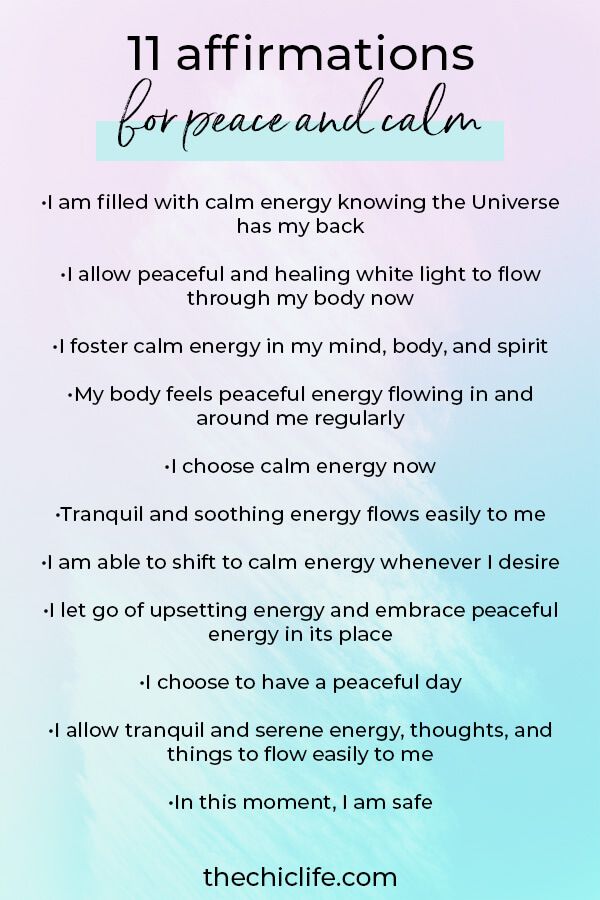
20. My eyes see what is happening around me and I am present in the present moment.
21. I breathe in confidence and breathe out fears and anxieties.
22. I have an even heartbeat.
23. My shoulders are relaxed.
24. My jaw is not clamped.
25. I hear the world around me and I am present in it.
26. I allow myself to feel the weight of my body.
27. I smell and taste food, and I am present in the present moment.
28. I relax and let the waves carry me to the shore.
29. Air comes in and out of my lungs.
30. My body is soft, my mind is soft, my soul is soft.
31. I feel more comfortable every minute.
32. The past has no power over me.
33. My condition is stable.
34. I think of my loving friends and family and they support me.
35. I am grateful for every moment in my life.
36.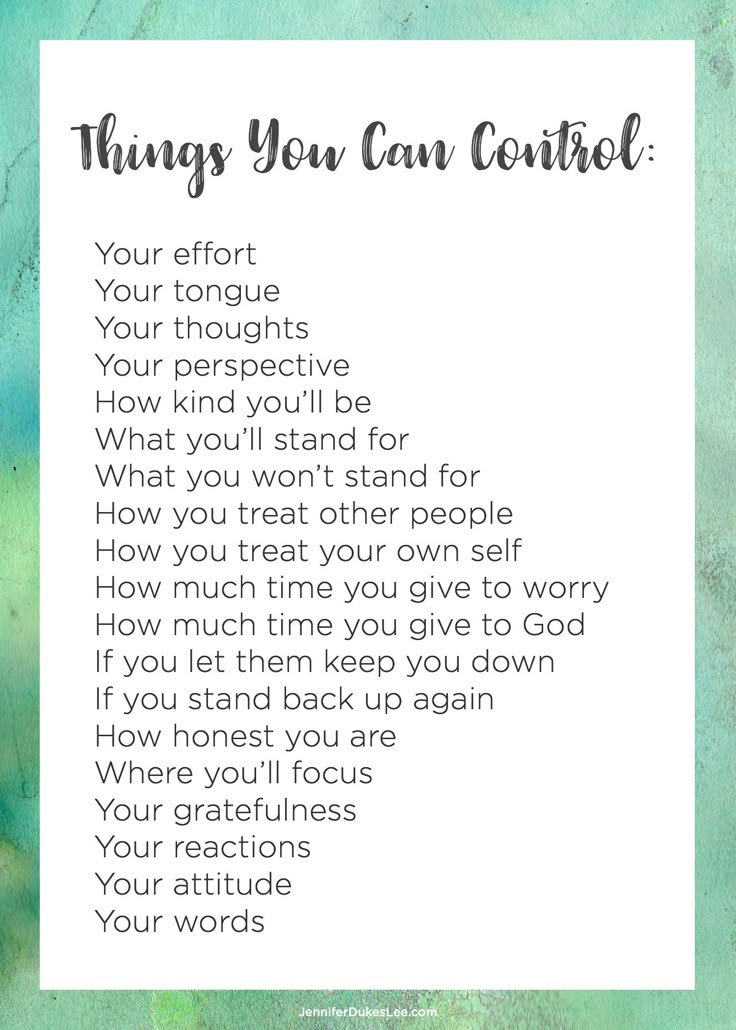 I accept my past. I live in the present. I'm ready for my future.
I accept my past. I live in the present. I'm ready for my future.
37. I breathe slowly and evenly.
38. Today I love myself more than yesterday.
39. I am free from the fear of being alone.
40. The past has no power over me.
41. I am more than my thoughts.
42. I am able to solve anything.
43. I do the right thing at the right time.
44. I'm fine.
45. My life is a gift.
46. I am grateful for every moment in my life.
47. I am stronger than my anxiety and fears.
48. I will go through any difficulties.
49. There are many opportunities and good things in my future.
50. I always have a choice.
51. I am calm and grateful.
52. I don't let anxiety or panic limit me and take away my happiness.
53. Overcoming anxiety is a matter of time, not willpower.
54. I can focus on the good things happening in my life.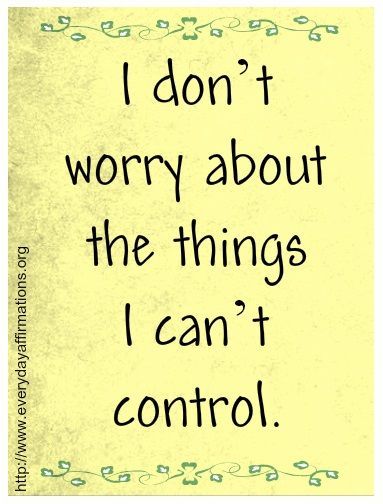
55. I deserve peace and happiness.
56. I am not my fear, I am brave enough to look him in the eye.
57. I always have a way out of darkness, even if it is not easy and not so fast.
58. What matters now is my life, whatever the circumstances.
59. Everything will be fine.
60. I am responsible for my life.
Information sources:
- happierhuman - Positive affirmations for anxiety
- healthline - How to write and use affirmations for anxiety
- zoella - 50 positive affirmations to calm the anxious mind
Author: Filipenko L.V.
We are on social media
45 positive affirmations to relieve anxiety and reduce stress
Author Olga Stepanova Reading 8 min Published
All the amenities of the modern world have been created in order to make life better, easier and more efficient.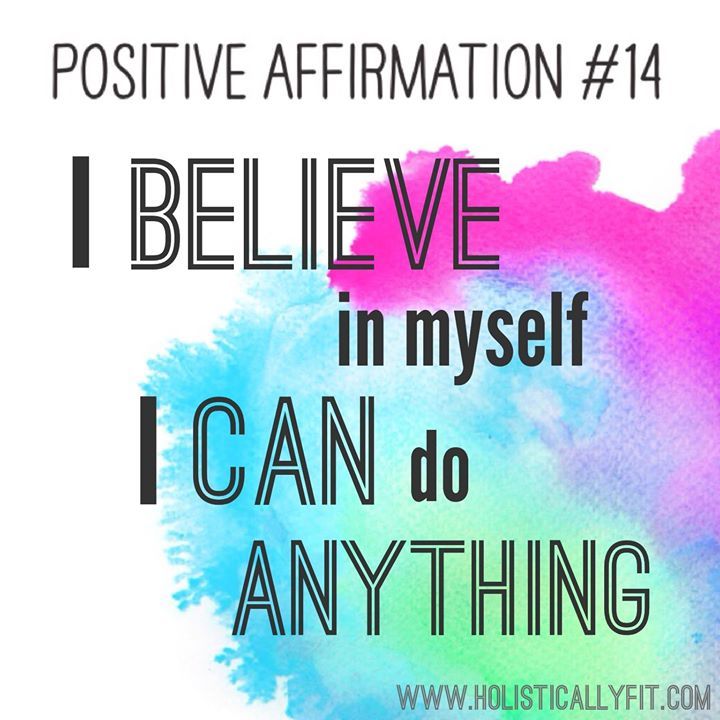 From microwave ovens to smartphones to international travel, there has never been a better time to live, right?
From microwave ovens to smartphones to international travel, there has never been a better time to live, right?
The pace of everyday life is incredibly hectic, people have to multitask to solve small and large issues. Being connected means that work, friends and enemies can call and text twenty-four hours a day, seven days a week.
Employed people work longer hours, often without overtime or benefits, and others depend on the gig economy. As the world changes in every area—economics, geopolitics, society, and culture—people are bearing the brunt of this burden.
We are connected like never before, and living in a world of technological marvels has its consequences. If you are trying to keep calm and peaceful in your daily life, there is an easy way to relax your mind and body.
Telling yourself that everything will be alright seems too simple, but that's how affirmations work. There is a lot of science behind affirmations, and you can use them to reduce stress and feel better.
Contents
- Positive Affirmations for Relieving Anxiety and Reducing Stress
- What is anxiety?
- What are affirmations?
- Affirmations are a positive tool for relieving anxiety
- General affirmations
- Affirmations for anxiety
- Specifically directed affirmations
- affirmation to restore after narcissistic relations
- learn to use affirmations in your life
Positive affirmations to relieve stress
is worthwhile that anxiety is the most widespread mentality in the United States?
According to Medical News Today, forty million Americans suffer from anxiety and anxiety-related disorders, but only thirty-six percent seek medical attention.
What is anxiety?
Whereas anxiety was once considered a healthy emotion or response to environmental stimuli, it is now viewed as a potential behavioral disorder with negative physical, mental and emotional consequences.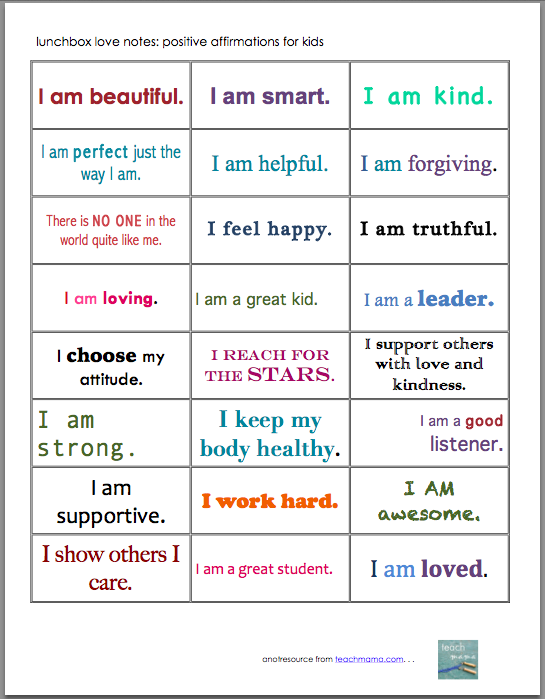
Anxiety is defined by the American Psychological Association as "an emotion characterized by feelings of tension, anxious thoughts, and physical changes." It has been inherent in people since the beginning of time, when our ancestors fled from large predatory animals and other dangers.
Anxiety, sometimes referred to as the "fight or flight" response, can cause palpitations, sweating, nervousness, fear, apprehension, restlessness, and sensitivity to the environment.
Anxiety has been with people since the beginning of time, it can cause heart palpitations, fear, anxiety and sensitivity to the environment.
Although we no longer run from woolly mammoths and saber-toothed tigers, people still experience anxiety usually related to money, work, family, relationships and health.
As we are constantly bombarded with 24/7 news, people have begun to experience other anxieties related to climate change, terrorism and authoritarianism. A wise man once remarked that we all inherit anxiety from our parents, which manifests itself in how we react to traumas or triggers.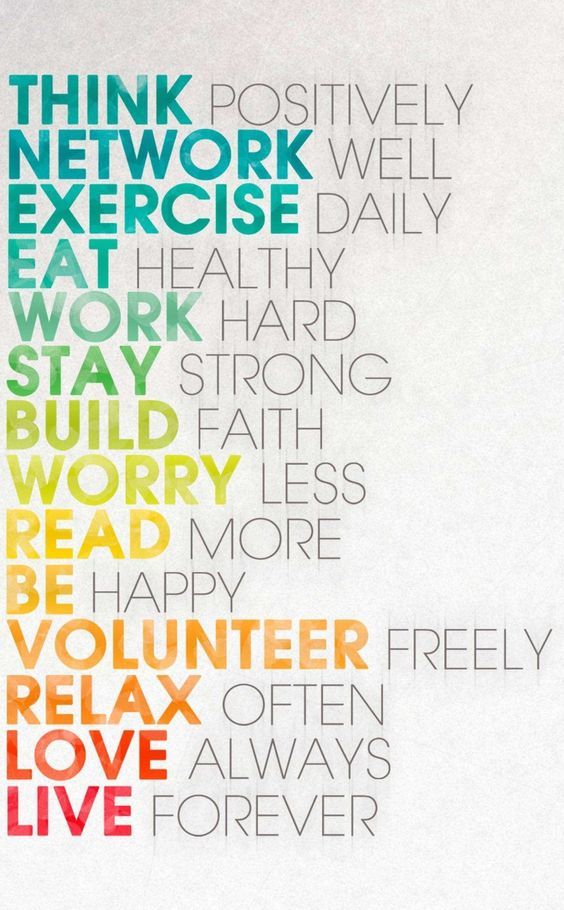
Being nervous about a public lecture, an interview, an upcoming flight, or a wedding is a completely different thing than suffering from anxiety. If left untreated or diagnosed, anxiety can lead to a disorder that can negatively impact a person's life. So how to treat anxiety? How to get rid of anxiety, fears and tension?
For many people, meditation, mindfulness and yoga can help relieve anxiety.
Affirmations are another way to deal with triggers and stress.
What are affirmations?
These are positive phrases and statements that replace negative or disturbing thoughts. Very simple to perform, affirmations allow the practitioner to create their own statements to address a particular situation or problem.
This may seem too simple. Is it enough to repeat a few positive phrases, and everything will disappear?
Of course, the underlying conditions and triggers will still exist, but the practice of affirmations allows a person suffering from anxiety to relieve immediate physical and mental symptoms, and there is science to back this up.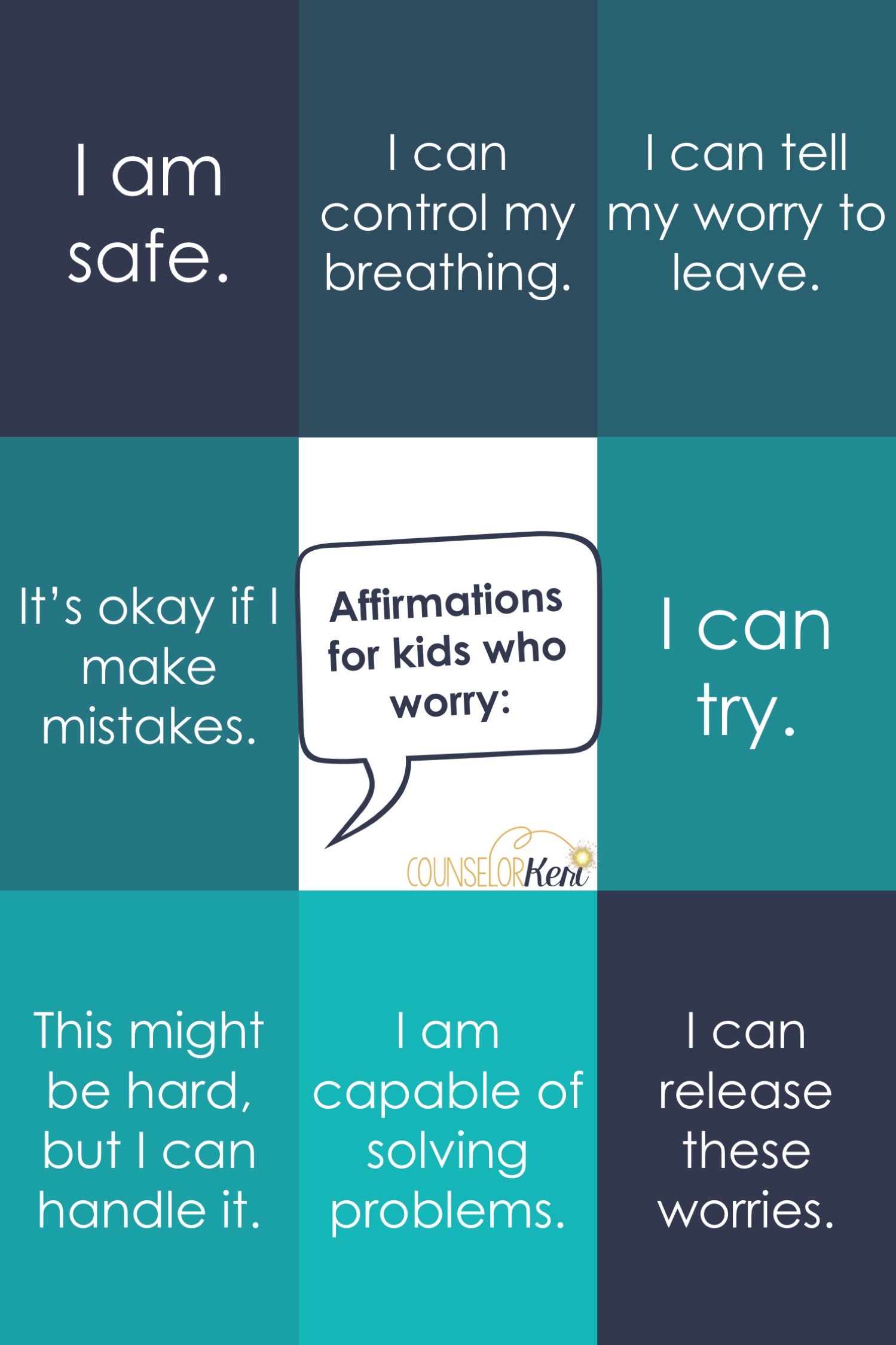
Naturally, consistent practice is the first step to success with affirmations, just like any other habit or hobby. In the psychological field, research has been done on the power and effectiveness of affirmations.
According to a 2014 article by Cohen and Sherman, affirmations are associated with self-integration, self-efficacy, and self-identity. Psychological research has inspired neuroscience research to find out if there are any changes in the brain with self-assertion.
Several studies have provided evidence that certain neural pathways are enhanced by the practice of affirmations. Empirical studies have shown that affirmations have a positive effect on overall health.
Affirmations can reduce stress; improve academic performance; reduce anxiety and fear; to force people to change their way of life for the better; make people accept threatening messages with less resistance; and improve physical behavior.
In addition to these pleasant benefits, affirmations increase overall resilience, inspire optimism and heal the body.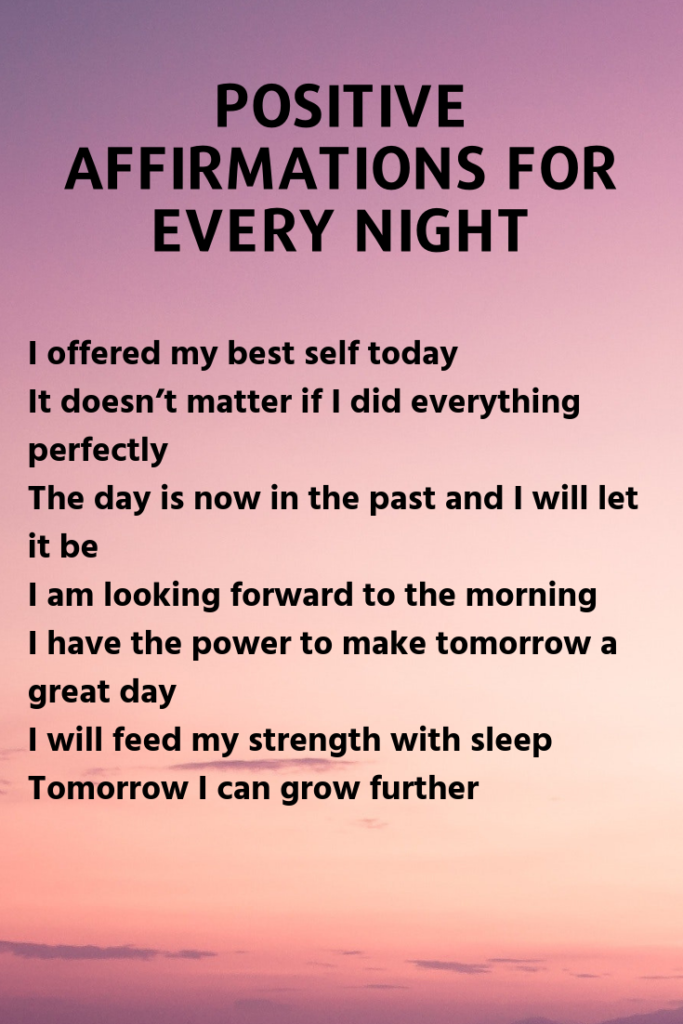
Affirmations - a positive tool for relieving anxiety
Affirmations can be said daily, although some experts advise repeating them three to five times a day, as in this case the practitioner will feel the benefits faster, and the feelings expressed in the phrase will remain in consciousness.
You can write them down on cards that you can carry with you or on sticky notes that you can place in your chosen location. Reading, saying and repeating affirmations will make them more effective. They are designed to encourage positive, happy feelings, thoughts, and attitudes. Since there is no religious or spiritual meaning to affirmations, anyone can practice them.
Although, as noted above, you can create your own affirmations depending on your situation, the following lists are suggested affirmations to help calm the mind, distract, and change negative thoughts.
Another tip for affirmations is to keep them short, encouraging, and positive, using "I" statements that fit your personality.

Focus on the present instead of worrying about the future and berating yourself for the past. If negative or harsh words or thoughts come up, write them down and then write affirmations against them.
Also try to understand what caused the derogatory remarks against you and identify the triggers. If the affirmations are for anxiety attacks, they may include positive reminders of what is helping you get through those attacks. Also, highlight your strengths, facts, and accomplishments.
General affirmations
- I am a successful person.
- I am confident in everything I do.
- I do my best.
- I choose to be happy.
- I am in excellent health.
- I am persistent; I will get through this difficult time.
- I believe in myself.
- I accept myself.
- I love myself.
- I don't judge myself.
- I don't compare myself to others.
Affirmations for Anxiety
- I choose to be calm.
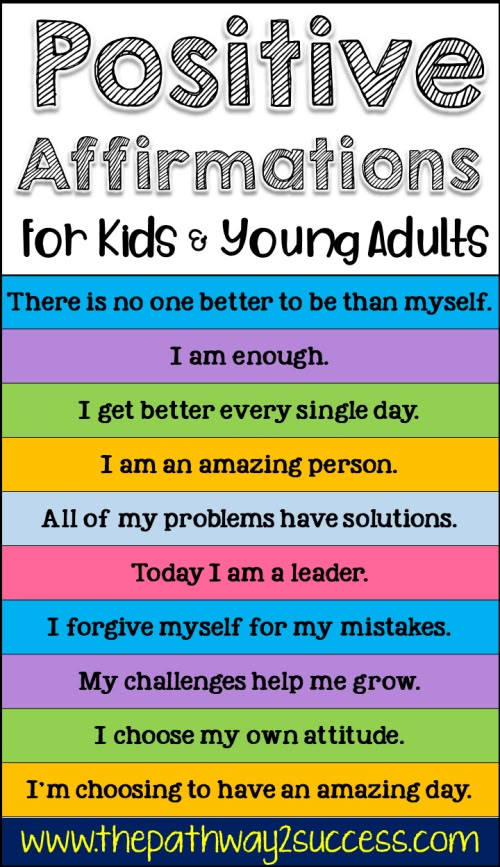
- I choose positive and caring thoughts.
- I am where I need to be.
- I do my best.
- I forgive myself.
- I let go of the past.
- I look forward to a happy bright future.
- I'm safe.
- I breathe in the good and breathe out the bad (variations on this theme: "I breathe in energy/light/health and breathe out negativity/darkness/sickness"). Often this affirmation can be used in meditation and some yoga postures)
- I am brave/I am strong.
- Everything will be fine with me.
Specifically directed affirmations
- I am not my anxiety.
- I am currently reducing my anxiety.
- I channel my energy into my values, not my anxiety.
- I have the strength to overcome my anxiety.
- I control my breathing.
- I cultivate inner peace.
- I appreciate the beauty around me.
- I will survive. (I have experienced my anxiety before.
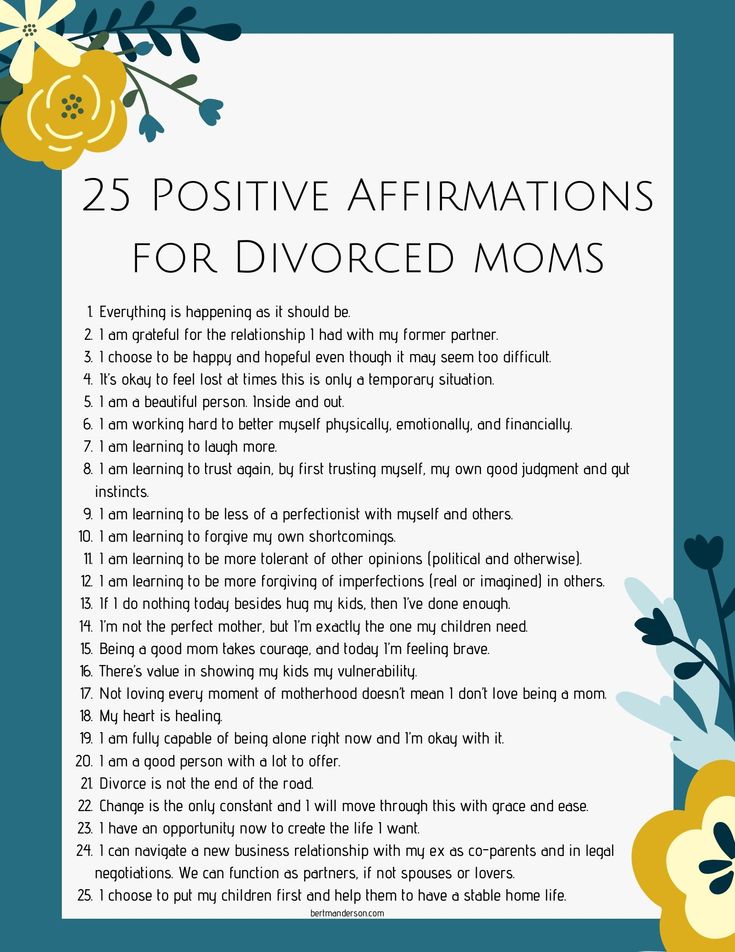 I will experience it now).
I will experience it now). - I'm interested in learning about my triggers.
- I am patient.
- I take one step at a time/one day at a time.
- I am present in this moment.
- I am not in danger; I'm just uncomfortable; this too will pass.
Affirmations for recovering from a narcissistic relationship
- I don't deserve violence.
- I am a good and kind person.
- I am talented and have a lot to offer.
- I actively contribute to my recovery.
- I like to make others laugh.
- I am an excellent listener.
- I have many friends who help me.
- I release myself from this unhealthy relationship.
- I am a true friend and partner.
- I empathize with others.
As you can see from these lists, affirmations can be applied to almost any situation, can be directed to almost any injury, and can be used by women, men, children and adolescents.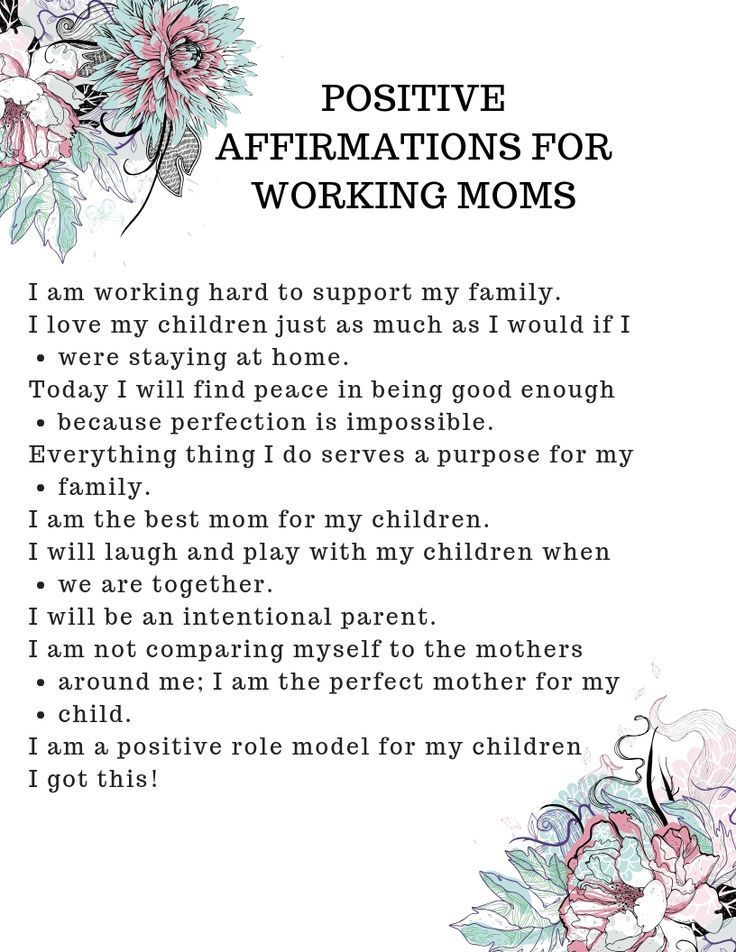
The ability to recognize negative thoughts as soon as they occur is very important for mental, emotional and physical well-being.
While affirmations do work, they are not an instant panacea. They require time, patience and commitment on the part of the practitioner. The desire to pronounce and read the chosen affirmations every day is necessary.
Learning to recognize negative thoughts as soon as they occur is very important for mental, emotional and physical well-being. Notice the thought and correct it as soon as possible. Change the negative tone to a positive one.
Learn how to use affirmations in your life
You may end up trying to deal with it proactively. Even in situations that can be stressful and fearful — from communication, presentations, to an important business meeting — affirmations can help.
Positive thinking is wonderful, and the whole purpose of this article and the practice of affirmations.